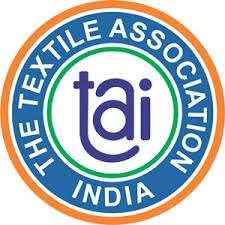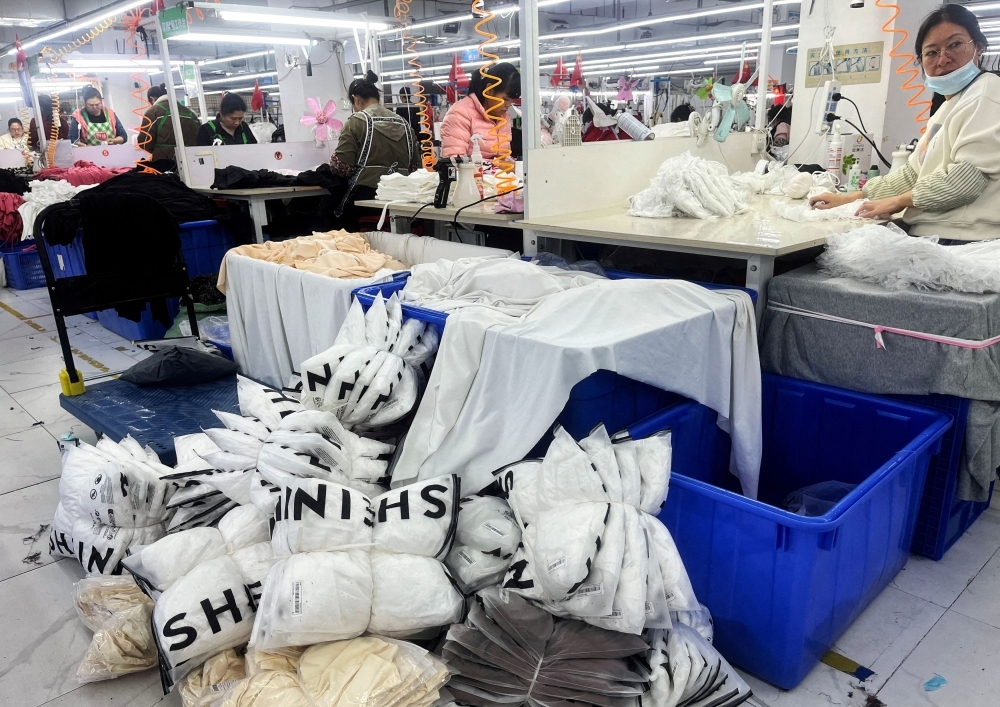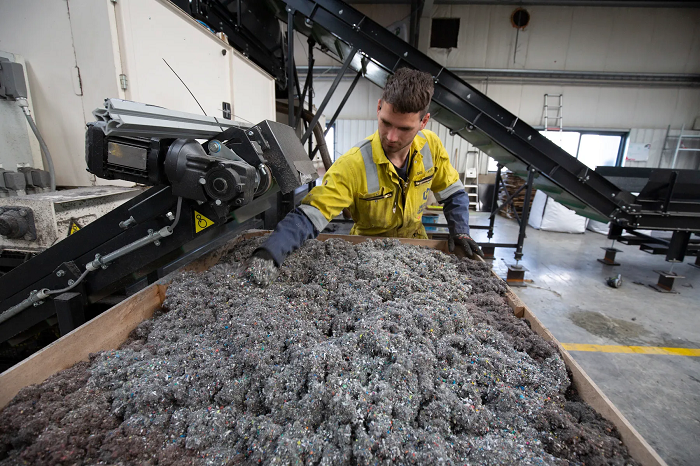FW
The Pakistan Readymade Garments Manufacturers and Exporters Association (PRGMEA) and Pakistan Hosiery Manufacturers & Exporters Association (PHMA) have appreciated the government's decision of exempting the industry from lockdown in view of providing financial relief to the workers. They pledged to take strict precautionary measures as directed by the government and health experts.
According to PRGMEA chief coordinator Ijaz Khokhar, opening the industry will retain millions of workers on their jobs, especially the women and the poor. The association also welcomed the government’s decision of releasing refunds of Rs 100 billion to the industry as this move will address the liquidity challenges faced by exporters, improving cash flow of the garment exporters and ensuring that workers will get their salaries on time.
PRGMEA regional chairman Sohail A Sheikh said orders worth millions of dollars from foreign buyers have either been cancelled or postponed. Under the prevailing circumstances, the small and medium enterprises immediately need government's financial assistance. Pakistan Hosiery Manufacturers & Exporters Association Vice Chairman Shafiq Butt suggested the government to take economic measures to keep industrial wheels running and save the livelihood of millions, including disbursement of all outstanding sales tax refunds at a fast speed.
Meanwhile, All Pakistan Textile Mills Association (APTMA) Punjab chairman Adil Bashir demanded the government should withdraw the ad hoc bills of Sui Northern Gas Pipelines Ltd (SNGPL). He also demanded extension in the last date for payment of gas bills issued for the month of March till lifting of the lockdown. Since there has been no production since March 23, 2020, therefore, there is no consumption of gas in the textile units.
India’s Buying Agents Association (BAA) recently appealed to large international companies that source apparel, handicrafts, leather goods and carpets, especially from small and medium companies in India, not to cancel export orders. The step would support the livelihoods of artisans and craftsmen.
BAA believes small and medium enterprises that rely on exports are particularly vulnerable. The association has also petitioned the government to support exporters as well service providers in the export sector. Its recommendations include exemptions in goods and services tax to all such service providers for the next six months as well as tax holiday for those with up to 10 crore turnover in exports.
BAA, formed in 2016 with the support of buying agencies and the Export Promotion Council for Handicrafts, represents buying agents that act as a bridge between overseas buyers and Indian exporters and work with key international companies. A large chunk of India’s exports across apparel, leather goods, furniture, carpets and handicrafts among other sectors, is facilitated by BAA members.
Regulations giving effect to the government’s commitment to assist ailing industries and workers through the Unemployment Insurance Fund are being gazetted. The first agreement is between the South Africa’s Minister of Labour and the National Textile Bargaining Council states that the regulations apply to all employers in the industry, not just council members, but only to those employees earning ‘wages’ and not ‘salaries.’
It guarantees an amount equal to full pay for the three-week period of the lockdown for those not working, jointly paid by employers with subsidies from the fund through its Temporary Employer-Employee Relief Scheme (TERS).
While these regulations do not specify the rand amounts, the standard industry agreements reflected that the scheme would pay out between R3,500 - the minimum wage - up to a maximum of R17,712 per worker on a sliding scale. The regulations state that the issue of relief for salaried workers is to be referred to a Rapid Response team, established to consider and resolve any unforeseen matters.
The preamble to the regulations records the intention to ensure that workers are not left destitute and to protect the industry. In order to claim, both the company and the employers need to be “in good standing” with the fund.
The secretary to the council has to open a designated bank account into which the funds will be paid out to qualifying employees. Companies must provide proper documentation for any drawdown of funds, and these must be made immediately available to the fund on request.
The agreement records that post lockdown, any overtime required to make up lost production will be paid at a normal rate.
Kering has partnered with the CDC Foundation to provide personal protective equipment and other vital supplies to assist in meeting the urgent needs of healthcare workers across the region. Kering and its Houses (Gucci, Saint Laurent, Bottega Veneta, Balenciaga, Alexander McQueen, Brioni, Boucheron, Pomellato, DoDo, Qeelin, Ulysse Nardin, Girard-Perregaux, as well as Kering Eyewear) will collectively donate $1 million to the CDC Foundation, to support the valiant efforts of frontline healthcare workers in the United States, particularly in highly impacted states such as, New York, New Jersey, California, and Florida, and locations in Latin America.
The CDC Foundation is the independent nonprofit created by Congress to extend the lifesaving work of the Centers for Disease Control and Prevention (CDC) through public-private partnerships. As the global coronavirus pandemic escalates rapidly across the United States, and around the world, there is a growing concern that U.S. community health needs will rapidly outpace capacity. The CDC Foundation’s Emergency Response Fund allows for the deployment of flexible resources to fulfill priority response needs where appropriated funds are not available or cannot be deployed quickly enough. Thus, Kering’s contribution hopes to create complementary impact alongside government in ways that will protect and provide lifesaving support as together we work to combat this unprecedented pandemic.
In addition, with the stance of aiding the American fashion industry impacted by the pandemic, Kering will support A Common Thread, the CFDA/Vogue Fashion Fund initiative, as well as ‘Your Friends in New York™ Want to Help.’ an organisation launched by Kerby Jean-Raymond with a mission to create rapid local impact within the community. These contributions follow those already made by Kering in France, Italy, and China in recent weeks and the production of over 1 million surgical masks and gowns for healthcare personnel.
 The Textile Association (India) today completes 81 years of its inception. To celebrate this landmark event, the association is celebrating April 8, 2020 as its ‘Incorporation Day. Established on April 9, 1939, by ten visionary technocrats, TAI was formalized along with 126 likeminded technocrats and managers. The objective of the association is to facilitate free exchange of information on technical cooperation. It aims to create a common platform for technocrats and leaders from small and big industries to come together to bring laurel to the industry and country at large.
The Textile Association (India) today completes 81 years of its inception. To celebrate this landmark event, the association is celebrating April 8, 2020 as its ‘Incorporation Day. Established on April 9, 1939, by ten visionary technocrats, TAI was formalized along with 126 likeminded technocrats and managers. The objective of the association is to facilitate free exchange of information on technical cooperation. It aims to create a common platform for technocrats and leaders from small and big industries to come together to bring laurel to the industry and country at large.
Speaking f on the occasion, Ashok Juneja, National President of the association congratulated founders, trustees, predecessor presidents, committee members and the entire textile industry for their support over the years. “It is a privilege to lead such a prestigious association which has had eminent presidents during its glorious journey from Late Dr Nazir Ahmed to Late Homi Modi; Late Dr Vikram Sarabhai; Late N V Ullal, Late Maj R P Poddar, JJ Randheri, MK Mehra, RK Dalmia, RC Kesar, Mathivanan, Dr PR Roy and many other eminent personalities,” he said.
Awarding eminent dignitaries
One of the largest national associations for textile professionals TAI currently has over 25,000 strong members through 26 affiliated chapters, spread throughout the length and breadth of the country.
In all these years, TAI, has conferred prestigious awards and honorary memberships to highly respected personalities like Nazir Ahmed, Kasturbhai Lalbhai, K M D Thackercy, Gulzarilal Nanda, Homi Modi, GD Birla, GD Ambekar, Vikram Sarabhai, Arvind N Mafatlal, Naval H Tata, Padampat Singhania, Neville Wadia, Maj. R P Poddar, Gaur Hari Singhania, Abhaykumar S Kasliwal, Mukesh D Ambani, K K Birla, Dhirubhai H Ambani and other distinguished people who have contributed towards the growth of textile industry in India.
Facilitating professional growth
TAI provides opportunities for professional growth of technologists in the Indian textile industry across all sectors. The association organises seminars, conferences, workshops, refresher courses and exhibitions of textiles and allied machines for the benefit of members. These activities are held across the country with the help of all 26 federal units, which are autonomous in their activities.
Conferences and publications
Till date, TAI has organized 75 Annual All India Textile Conferences (AITCs) at an international level. These conferences focus on contemporary and innovative topics with high profile speakers. Eminent industrialists, policy makers, reputed professionals and renowned experts from different parts of the world have presented their research papers at these conferences.
TAI also publishes small tablets and textbooks for the benefit of practicing professionals and students. It publishes study materials to help members acquire textile qualifications by appearing for standard examinations.
Internationally, TAI is the founder member of the Federation of Asian Professional Textile Associations (FAPTA). TAI’s national president is one of the members in International Advisory Committee of FAPTA. TAI is also the co-sponsor of India ITME Society and the national president is one of the vice chairmen on their steering committee.
Future plans
In future, TAI aims to stay more connected with the industry through various ground activities organised by different units across the country. One such initiative started by the association includes an interaction through JTA. “We welcome more and more industry engagement through JTA. Readers can send us their contributions as expert articles, researches, reports and developments in their work space. This will add to everyone’s knowledge,” Juneja informs.
“Our vision is to be internationally renowned as a leading association of textile technocrats and professionals promoting scientific and technological knowledge and training with benchmarking performance,” Juneja added.
Zahid Mazhar, Chairman – All Pakistan Textile Mills Association, Sindh-Baluchistan Region, has appreciated all the positive steps the provincial and federal governments have under taken to control wide spread of Coronavirus (COVID-19) Pandemic and to combat its adverse impact.
He said that due to drastic slowdown of domestic as well as international markets and delay in receipt of payment from them in addition to cancellation of export orders even from big organizations and large scale buying houses, export oriented textile industry is facing worst ever liquidity crisis.
He said the Coronavirus (COVID-19) Pandemic is having extremely negative impact on Pakistan’s economy. Mr. Zahid Mazhar said that though the Government has taken some positive steps like deferring loan repayments and speeding up of refunds but it will fall far short of keeping the industry afloat. He further said that drastic situation needs drastic measures to be taken to save our export oriented textile industry from the negative economic impact of Novel Coronavirus (COVID-19) as it is showing adverse impact on exports. The government has to save lives together with livelihood.
He demanded the government to provide immediate relief in the best interest of industry, economy and the people as the impact of slowing of economy and lockdown can only be shielded by the industry for a month or two beyond which there will be no capacity to retain workers leading to massive unemployment. He also emphasized that currently there is an acute shortage of liquidity and it is impossible for the mills to pay the utility bills. He requested the government to come to the rescue and immediately announce the deferment of payment of gas and electricity bills by the industry for a period of atleast one month. He further demanded deferment of payment of interest on short term loans for at least three months. He also pointed out the dire need to immediately bring down the rate of interest to 5 percent.
He requested the Government of Sindh to allow running of those textile mills which have labour residing within their residential colonies as well as those export oriented units which have export orders in hand.
ITMF has conducted a survey among ITMF Members about the impact of the Coronapandemic n the global textile value chain, especially on current orders. In total 34 companies from around the world participated in addition to two national textile associations with several hundred participants. Worldwide, current orders are down by -8 per cent. The results show that on average companies in all regions of the world suffered significant numbers of cancellations and/or postponements. On world average, current orders dropped by 8 per cent. The decrease in orders ranges from 4 per cent in South America to 13.3 per cent in Africa.
Worldwide, expected turnover in 2020 vs. 2019 is likely to decline by 10.5 per cent The results show that on average companies in all regions are expecting their turnovers in 2020 to be significantly lower than in 2019. On world average, the turnover in 2020 is expected to be 10.5 per cent lower than in 2019. While in North America the expected plunge will be on average 7.5 per cent, companies in Europe are expecting a drop of 17.5 per cent.
With other words, these companies and organisations were neither affected by a Coronaepidemic in their own country, nor were their customers (mainly in Europe and North America). The later replies were received (from March 17onwards), the more negative were the answers across all regions. It can be assumed that the fact that after March 16 more and more governments in Europe and North America introduced almost daily new regulations that were restricting public and business life (e.g. closing of kindergartens, schools, universities, shops, bars, cinemas, museums, sport facilities, ski resorts, borders, etc.) was crucial. With all these restrictions in place ‘offline’ consumption of textiles and apparel in retail shops, departments stores, outlets stores, etc. dropped dramatically. This seems to have led brands and retailers across the board to cancel and/or postpone orders significantly.
A total of 71.95 per cent of share capital were represented at the 47. Annual General Meeting of Shareholders (AGM) of Oerlikon via the authority that was granted by shareholders to the Independent Proxy, Proxy Voting Services GmbH. Shareholders did not attend the AGM in person in line with the ordinance from the Federal Council of Switzerland in the fight against the coronavirus. Following the instructions given to the Independent Proxy, all resolutions were approved by a large majority, including the maximum aggregate total compensation of the Board for their term of office (AGM 2020 to AGM 2021), the maximum aggregate fixed compensation of the Executive Committee (EC) for the period July 1, 2020 through June 30, 2021 and the retrospective variable compensation of the EC for 2019, as well as the dividend payout of CHF 1.00 per share for 2019.
Prof. Dr. Michael Süss was reelected as the Chairman of the Board of Directors. Mrs. Irina Matveeva was elected as a new member of the Board, while Paul Adams, Geoffery Merszei, Alexey V. Moskov, Gerhard Pegam and Dr. Suzanne Thoma were all reelected as members of the Board. Furthermore, shareholders approved the reelection of Prof. Dr. Michael Süss, Paul Adams, Alexey V. Moskov, Gerhard Pegam und Dr. Suzanne Thoma as members of the Human Resource Committee. All elected Board members will serve a one-year term.
Oerlikon engineers materials, equipment and surfaces and provides expert services to enable customers to have high-performance products and systems with extended lifespans. Drawing on its key technological competencies and strong financial foundation, the Group is sustaining mid-term growth by addressing attractive growth markets, securing structural growth and expanding through targeted mergers and acquisitions. A leading global technology and engineering Group, Oerlikon operates its business in two Segments – Surface Solutions and Manmade Fibers – and has a global footprint of more than 11 100 employees at 182 locations in 37 countries. In 2019, Oerlikon generated CHF 2.6 billion in sales and invested more than CHF 120 million in R&D.
Klaus Maitre, a veteran of the nonwovens and textile industry for five decades, passed away on March 25, 2020 at the age of 81.
Maitre immigrated to the U.S. in 1963 after receiving his Master’s and Bachelor’s Degree in mechanical engineering from the Technical University of North Rhine Westphalia in Aachen, Germany. His career included working as Divisional Vice President for the former Standard Coosa-Thatcher Company, a textile company, before joining the U.S. wholly-owned subsidiary of Dilo Systems Group as Executive Vice President. Maitre served at Dilo for over 25 years before retiring and starting his own consultancy, The Sigma Group, LLC.
Maitre served on INDA Conference Planning Committees offering his expertise and vision to help guide programs and content. He maintained a strong presence through his time at Dilo at INDA conferences and expositions for over 20 years.His interests outside the nonwovens industry included a deep appreciation and love of history, soccer, and he was also a life-long Carolina Panthers’ football fan.
INDA, the Association of the Nonwoven Fabrics Industry, serves hundreds of member companies in the nonwovens/engineered fabrics industry in global commerce. Since 1968, INDA events have helped members connect, learn, innovate and develop their businesses. INDA educational courses, market data, test methods, consultancy and issue advocacy help members succeed by providing them the information they need to better plan and execute their business strategies. For more information, visit www.inda.org, or download the INDA mobile app for immediate updates.
With fashion industry hit the hardest by COVID-19, Moda Operandi has decided to close its men’s business. It had ventured into men’s business in June 2018 dealing in men’s apparels, footwear and accessories both through its trunk show model and in season. However, the company plans to keep its men’s team on through the second quarter so as to wind down the business.
It is undoubtedly the outcome of the impact of COVID-19 on fashion industry that the Moda Operandi has decided to shut down men’s division. It plans to focus on its core business that revolves around women’s fashion, fine jewelry and home products.
Analysts’ reports released last year state that the sales of high-end goods could decline between 20 per cent and 30 per cent in 2020 in the wake of Coronavirus pandemic.
RBC Europe underlined that around half of luxury sales in the continent come from tourists, compared with 80 per cent to 90 per cent domestic sales in the Americas that is likely to continue even when lockdowns ease up.
Further, it projects that aspirational luxury spending might be affected as younger consumers – specifically talking about millennials and Gen Z that together account for about a third of luxury shoppers – are more prone to the economic fallout.











